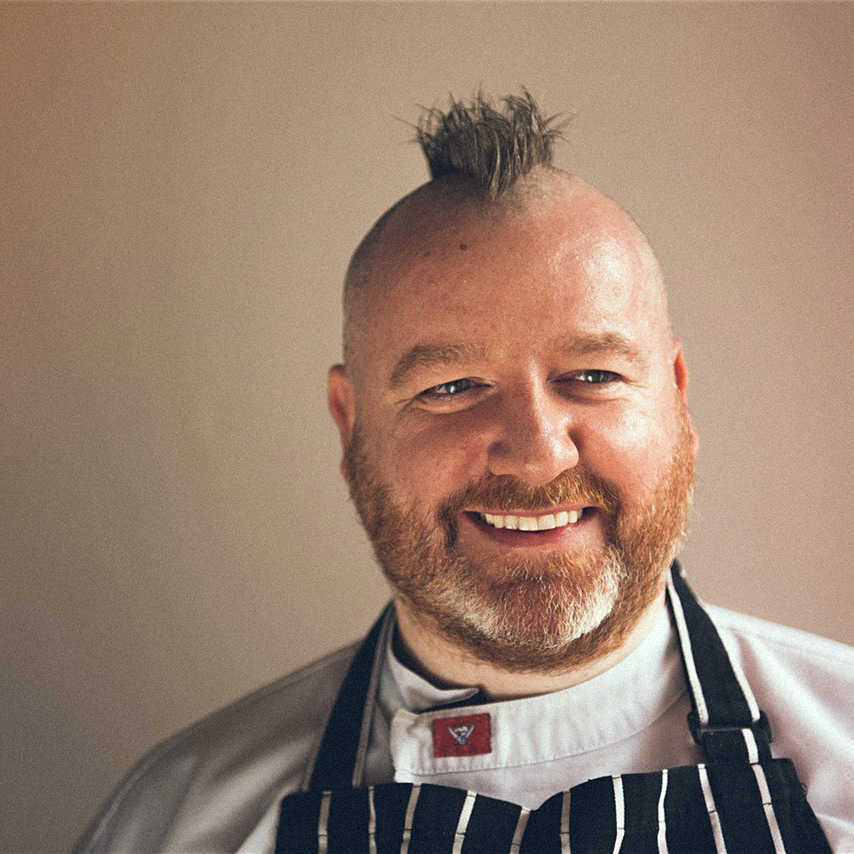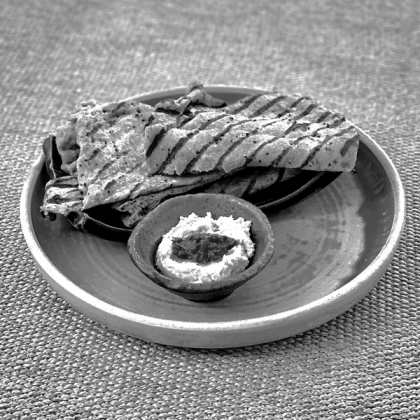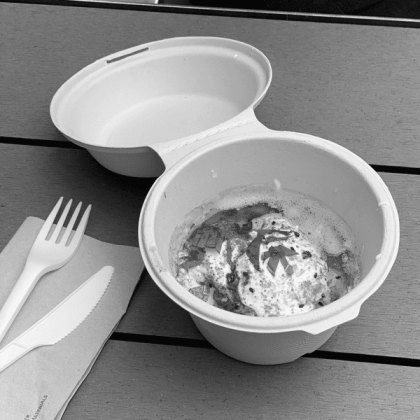Restaurants on the Brink
Only the best survive long term. At least that used to be the case. Thorntons, Eastern Seaboard, Fenns Quay, Luna. Just some of the names that have turned the lights off in recent times. It certainly puts to bed the case that only the best survive.
I can’t remember a more fragile environment around our business. Minimum wage hike after minimum wage hike followed by increases to employer PRSI, VAT hikes, uncertainty around Brexit, the news that calories on menus will be pushed through (that’ll make for another post soon) and the biggest killer of all: the staff shortage.
It’s no longer seen as essential to build a CV. In my early career, to go work for someone, only to leave within months, would be hugely damaging to your reputation. That type of thing just wouldn’t be tolerated, chefs would steer clear of you and, because they’d no shortage of young cooks looking for work, they weren’t under pressure to hire the first thing that showed up.
Sadly, that’s where the industry now finds itself. About two years ago I sat for a drink with one of our best chefs. He talked about having recently hired a young chef that had only done 6 months in another high-end restaurant in Dublin. He said it killed him on two fronts. 1) He hated hiring someone from another restaurant where the chef-owner was a friend. 2) The fact he only stayed 6 months in said restaurant, and he was demanding more money. This particular chef said he’d no choice but to hire this kid as a) he needed him and b) he knew he’d be working by the following day somewhere else anyhow. Beggars can’t be choosers.
That’s where it’s all wrong. This particular chef I was speaking to would have had his pick of the best young chefs in Ireland when I was starting out on my career over 25 years ago. I could roll the names of some of the best chefs in Ireland today off my tongue without a seconds thought…. The common denominator? They all had the foresight to work for the aforementioned chef in the early part of their careers.
When I did a full week in The Rosapenna Hotel back in the mid-to-late ‘90s, I came home with between 56 and 70 bucks a week. We were paid by the shift and we were paid fairly. I was lucky to be able to stay with my favourite auntie, overlooking Downings beach, for 5 summers and even if I couldn’t the hotel offered free lodgings. I probably had more expendable income then than I do nowadays, with a mortgage, health insurance, car insurance, house insurance, bills, crèche fees and so on (I could go on too!)
My point being, in some industries, being on the job and getting provided with training and getting the opportunity to learn as you earn something is a much better scenario than one whereby the restaurant can’t fucking afford to hire you. That’s where we find ourselves today. In Chateau du Coudreceau today I’m still doing certain things the exact same way I did as a 15 year old in The Rosapenna. Good training that has never left me. Good training that I’m as thankful for today as I was back in the '90s.
Restaurants take on an apprentice now or a commis (or whatever you want to call a young cat nowadays) and, in my opinion, they’re not much use to said restaurant until they’re about 5 or 6 months in, and that’s being generous. The higher end the restaurant the longer that settling in period will be. I don’t care how talented the young cook is, that is a minimum timescale.
You’re now exposing a young cook to your systems, your style and standards, your recipes, your suppliers, strategy and your inner workings. I could go on. That young chef is pretty much an added salary for the first 2-3 weeks when they’re mostly getting a feel for things but contributing absolutely nothing other than overhead. Then they move to a section that has more than one chef running it so that he/she can be trained to one day run it by themselves. At least that’s what happens if you’re very lucky.
More often than not, though, that young chef will shadow a station for a brief period and then it’s down to business. The training period is pretty much non-existent due to the fact you’ve no one else. NO ONE. Now you have a scenario where a new member of staff is in the weeds from day one, you’re too busy running your own station to think straight and, before you know it, it’s a few months down the line and he/she gets pissed off and jumps at the first hint of a job elsewhere, where the same vicious cycle continues. You want to provide the proper training, but the bodies just aren’t there.
The bigger picture in all of this is standards. Basics standards. Be prepared to see standards in the hospitality business dramatically decline over the next 5 to 10 years. (Unless something drastically changes.) Just when Ireland finds itself on the crest of a culinary wave. There’s no doubt in my mind, the greatest obstacle facing our industry over the next 10 years isn’t VAT hikes, rate hikes, insurance hikes et al but the severe lack of chefs.
Things That Might Help.
I saw Chapter One tweet just after Xmas about their approach to 2020. Their planning or, as I like to call it, a snapshot of their strategy for the year ahead. Smart, very smart, and no surprise.
Chapter One didn’t get to where it is by being an over-night success. It has, I imagine, from day one implemented standards and habits that have been tweaked day on day, month on month and year on year. The proper way to do things and not to fly by the seat of your pants.
You can jump on their website and read their blogpost that will give you a more in-depth read and it’s worthwhile. Removing lunch services during the week (bar Friday) and bringing the pre-theatre menu to the earlier start time of 5pm as opposed to 5.30. The latter making room for more patrons I’d imagine, and also giving more seat time to those that would maybe feel rushed with a later sitting. Take that extra number away from what sits for a mid-week lunch and add it to the hours of labour saved and the differential will be minimum I’d imagine, and you’ve a much happier and more energetic crew.
Something I was most proud of from my time in Viewmount House was keeping pretty much the same crew for almost 10 years. Unheard of nowadays. I’ve had the pleasure of having three of my old crew work with me in France over the past 8 months, and there will be many more of that crew in the months to come. My sous chef, Adam, is a young chef I had for my last 3 years in VM. Nothing makes me prouder than having someone who worked with me in the past want to do so again.
I’ve questioned every aspect of my career recently. There’s no doubt I was full on in the early days, but always kept it to work and never crossed that personal line. Important to know where that line is. I set very high standards for myself, and everyone around me. I NEVER opted for the most talented people when hiring. I always went with strong character over talent. Another thing I tried to implement was flexibility on start times. I’d always pick a time and we’d stick to it, but week on week it would alter slightly. Give your chefs freedom to operate and don’t tie them to a clock-in clock-out system that’s set in stone. My aim every day I’ve worked over the past 26 plus years was ‘what do I need to do to be ready for service?’
Every evening when things were settling down we’d take a look at mise en place and, if we felt we could start a little later the following day, then we did. Standards were never ever compromised. More often than not my crew dug deep early in the week so that those with partners or families could, at the very least, spend a few hours with them on a Saturday morning. I used to live for a late breakfast with Netty (pre-bambinos) on a Saturday somewhere in town before hitting the kitchen.
Closing for at least one day, but ideally two, was massive for the success of VM, I felt. It meant we could function with a much smaller crew. It meant no calls on their days off with problems. It meant everyone landed in on a Wednesday morning fresh as a daisy and ready to Rock’N’Roll. What it also did was put a full stop on the previous week, and it brought focus to a new week ahead. Every week was a new chapter. Where the full stop post Sunday service became really beneficial was after a shite week. That’s it. It’s done. Let’s all regroup and come back fresh on Wednesday and just move on. Every day is a new day in this business.
I certainly don’t have all the answers but, without a shadow of a doubt, something needs to change and change fast. Chefs are exhausted, and restaurant owners are worried. Of that there is little doubt. A business that is traditionally very stressful to run has got harder and harder of late. People are on the brink and they need help. Time for the government to look after the sector, before it’s too late for THEM!







